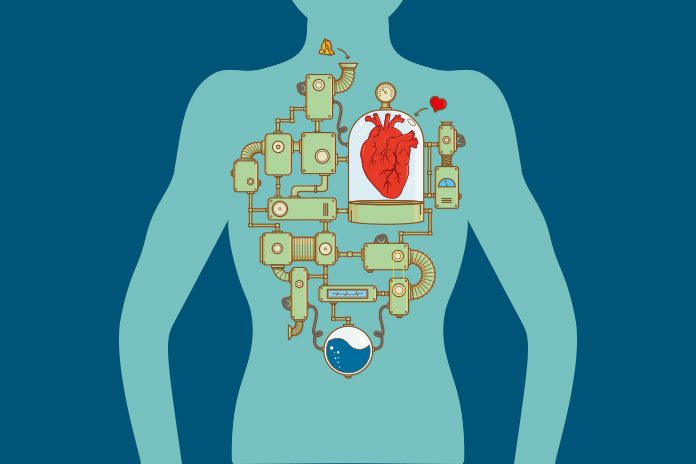Introduction
In today’s world, where chronic diseases cast a long shadow on public health, the intricate relationship between diabetes and heart health has come to the forefront. Diabetes, characterized by high blood sugar levels, and heart disease, a leading cause of global mortality, often go hand in hand.
This article delves into the symbiotic connection between diabetes and heart health, unraveling the underlying mechanisms, exploring shared risk factors, and presenting strategies to effectively manage cardiovascular risks in individuals living with diabetes.
Understanding the Link Between Diabetes and Heart Health
The link between diabetes and heart health is multifaceted and bi-directional. People who have diabetes have anywhere from a two to four times increased risk of developing heart disease compared to those who do not have diabetes. This connection can be attributed to the interplay of various factors, including insulin resistance, inflammation, and the impact of high blood sugar levels on blood vessels and nerves.
Insulin Resistance and Inflammation: Insulin resistance, a hallmark of type 2 diabetes, not only impairs the body’s ability to regulate blood sugar but also contributes to the hardening and narrowing of arteries, a precursor to heart disease. Chronic inflammation, often exacerbated in diabetes, further accelerates the development of atherosclerosis, the buildup of fatty plaques in arteries. Please fill out this form to determine whether or not you or a friend are eligible for a CGM.
Hyperglycemia and Vascular Damage: Prolonged hyperglycemia damages blood vessels and nerves, promoting endothelial dysfunction. This dysfunction disrupts the delicate balance between blood clotting and vessel dilation, increasing the risk of blood clots and reducing blood flow to the heart.
Read Guide about Wegovy Dosage Guide: The Best Way For Weight Loss
Shared Risk Factors
Beyond the biological connections, diabetes, and heart disease share common risk factors that amplify their alliance.
Obesity: Obesity stands as a prominent risk factor for both conditions. Excessive body weight contributes to insulin resistance, inflammation, and the accumulation of visceral fat that releases harmful substances into the bloodstream.
Sedentary Lifestyle: Physical inactivity not only contributes to obesity but also exacerbates insulin resistance. Engaging in regular exercise not only aids in weight management but also improves insulin sensitivity and overall cardiovascular fitness.
Uncontrolled Blood Pressure: Elevated blood pressure strains the cardiovascular system, increasing the risk of heart disease. Diabetes, particularly when poorly managed, often goes hand in hand with hypertension, creating a double jeopardy situation.
Dyslipidemia: Abnormal lipid levels, characterized by elevated LDL cholesterol and reduced HDL cholesterol, are prevalent in both diabetes and heart disease. These imbalances contribute to the formation of arterial plaques and increase the risk of cardiovascular events.
Managing Cardiovascular Risks
Acknowledging the potent connection between diabetes and heart health is the first step toward effective risk management. A holistic approach that addresses both conditions simultaneously holds the key to improved outcomes.
Optimal Blood Sugar Control: Maintaining target blood sugar levels through medication, diet, and lifestyle changes is pivotal. Regular monitoring empowers individuals to make informed decisions about their dietary choices and medication adjustments.
Heart-Healthy Diet: A well-balanced diet rich in whole grains, lean proteins, healthy fats, and a variety of fruits and vegetables not only helps manage blood sugar but also supports heart health. Limiting processed foods, sugary snacks, and excessive salt intake is essential.
Regular Physical Activity: Engaging in regular exercise, tailored to individual capabilities, improves insulin sensitivity, promotes weight loss, and enhances cardiovascular fitness. For the best possible outcomes, you should focus on doing both aerobic and strength training on a regular basis.
Medication Adherence: For many individuals with diabetes, medication is a crucial aspect of blood sugar management. Adhering to prescribed medications, such as insulin or oral antidiabetic agents, is vital for both diabetes control and heart health.
Blood Pressure Management: Controlling blood pressure through lifestyle modifications and medication, if necessary, reduces the strain on the heart and blood vessels. Regular monitoring and compliance with treatment plans are essential.
Lipid Management: Collaborate with healthcare providers to monitor lipid levels regularly. Statins, a class of medications that lower cholesterol, are often prescribed to individuals with diabetes to mitigate cardiovascular risks.
Quit Smoking: Smoking intensifies the risk of heart disease and further complicates the health of individuals with diabetes. Seeking support to quit smoking is a critical step toward improving overall cardiovascular health.
Must Read About How Dehydration Impacts Type 2 Diabetes
Conclusion
The inextricable link between diabetes and heart health underscores the urgency of comprehensive management strategies. Acknowledging the shared risk factors, biological mechanisms, and clinical implications empowers individuals to take charge of their health.
With a commitment to optimal blood sugar control, heart-healthy dietary choices, regular physical activity, and adherence to prescribed medications, the journey toward mitigating cardiovascular risks in the presence of diabetes becomes an attainable goal. By fostering a collaborative partnership between healthcare providers and individuals, the alliance between diabetes and heart health can be faced head-on, leading to improved outcomes and a better quality of life.


